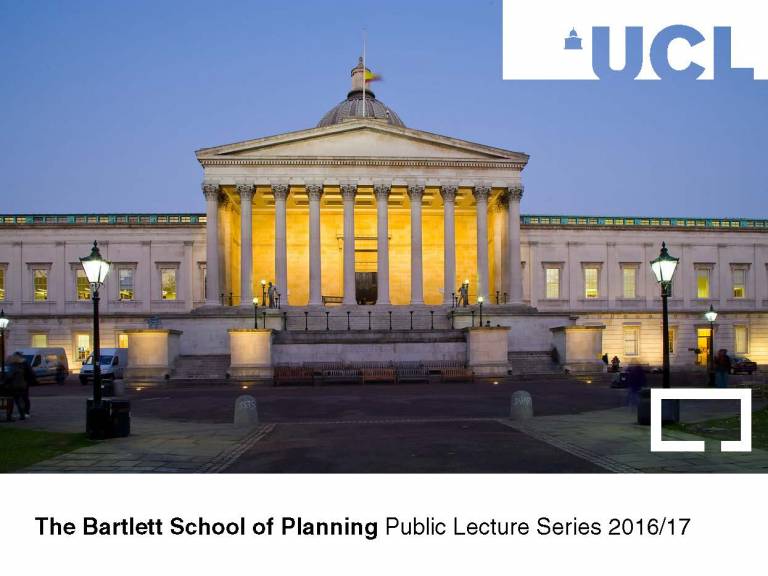Creative Improvisation and Critical Pragmatism: Three Cases of Planning in the Face of Power
25 May 2017, 6:00 pm–9:00 pm

The Annual Sir Peter Hall Lecture given by John Forester, Cornell University
Event Information
Open to
- All
Availability
- Yes
Organiser
-
Victoria Howard
Location
-
Roberts Building, G.06 Torrington Place London WC1E 7JE
Planning properly understood is less technical problem-solving than the social and political “organization of hope.” When planners do well, city residents have better ideas about how they might really live, work and interact. But planning is notoriously complex and politicized, uncertain and ambiguous, calling upon physical and natural sciences no less than upon ethical and normative visions of the good life. Theories of how planners can act well in such complex and contested contexts are typically thin at best, irrelevant to practice otherwise. This lecture explores the promise of a critical pragmatism in planning that might do justice both to the messy details of actual planning practices and to the intellectual concerns that constitute the field. To make this case, I consider three very different cases of planning well done: in Cleveland’s city hall (by Norman Krumholz), in New Orleans in the aftermath of Hurricane Katrina (by Ken Reardon), and in Albuquerque, New Mexico after a consultant’s striking failure to plan for an important transportation corridor (by Ric Richardson). Examining these diverse cases closely will reveal a shared practical structure of creative improvisation put into practice by the planners involved. Implications for education and governance follow.
The Speaker
John Forester is Professor of City and Regional Planning at Cornell University. He received his B.S. (1970) and M.S. (1971) in Mechanical Engineering and his M.C.P. (1974) and Ph.D. (1977) in City and Regional Planning from the University of California, Berkeley. Forester’s research on the micro-politics of planning has explored issues of power and conflict, negotiation and mediation, and practices of organizing, deliberation and improvisation. Forester’s best known books are Planning in the Face of Power (UC Press, 1989), The Deliberative Practitioner (M.I.T. Press, 1999), and Dealing with Differences: Dramas of Mediating Public Disputes (Oxford U. Press, 2009). His recent publications include Planning in the Face of Conflict (APA Press, 2013), Conflict, Improvisation, Governance (with David Laws, Routledge, 2015), and Rebuilding Community After Katrina (with Ken Reardon, Temple U. Press, 2016). A senior editor of Planning Theory and Practice, his Changing Cities, Reimagining Cities (with Daniela DeLeo, INU Editrice, 2017) is forthcoming.
 Close
Close

